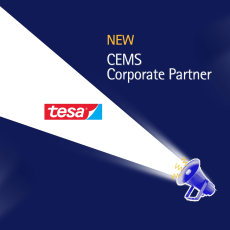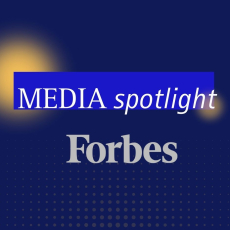Yves Neron-Bancel is a man who relishes a challenge. In a wheelchair for many years, he took the decision to raise money for spinal cord research by “arm” cycling with a special wheelchair equipped with a trailer and in full autonomy from Oslo to North Kapp—Europe’s Northern-most point—and back to Copenhagen where he was living in 2007.
The odds were stacked against him: the sheer length of the journey at more than 3500 km, as well as the inclement conditions of cold, rain and mosquitoes made it a near impossible feat. But Yves was determined. For seven months of preparation, he went into intensive physical training and fund-raising. He was also looking for motivation and moral support; something he found in abundance from his CEMS colleagues prior to kick-off. The project was also critical to him, in terms of connecting with a real sense of purpose and in bridging a gap in his life.
“I was between jobs at that point in my life and I felt that I was in a kind of personal and professional turning point. I recognised the need to optimise my time and do something purposeful simultaneously. Planning it out, deciding where to go for funding and support, I got an important sense-check from CEMS colleagues – I needed to understand just how viable the project was from the perspective of people I trusted.”
In the event Yves completed the overwhelming lion’s share of the journey, despite the wind and the odds stacked against him. His enormous effort and outstanding achievement were captured by major European press and media at the time and raised tens of thousands of euros for game-changing spinal cord research.
“I’d say that it proved to be one of the best experience of my life. But I couldn’t have done it without the motivation of my loved ones and my colleagues from CEMS.”
"Motivation and determination goal-focused was the basis that kept me going.”
The former CEMSie, a graduate of Rotterdam’s Erasmus and Copenhagen Business School has maintained a life-long tie with CEMS—a red thread connection that has seen him go on to leadership positions with two CEMS Corporate Partners. On completing his Scandinavian biking challenge, he was hired by L’Oréal where he spent five years, culminating in his role as Senior Product Manager in the Netherlands. In 2014, he made the switch to Montblanc, part of the Richemont group; a decision driven, he says, by passion.
“I loved the dynamism of L’Oréal and the extraordinary pace of working life in a big multinational. But after five years, I wanted something else. I’d previously had an internship with Cartier, a Richemont brand as well, and I knew that this was a company with a passion for beauty, details, and artistry—a passion that I shared.”
A step back and a step forward
Making the transition to Montblanc, Yves started out in a senior marketing role based in the Netherlands. One year later, he was promoted to Managing Director for Benelux and Scandinavia; a function of his personal dynamism and ability to hit the deck running. Within five years, he was invited to head up the company’s international wholesale division based out of their headquarters in Hamburg. The last move wasn’t without certain complexity, says Yves.
“I’d been promoted really fast to Managing Director, heading up a team of 30 in Amsterdam. When I was offered the new role at HQ, my first instinct was that this might be a retrograde step. There wasn’t a big team to lead, and I felt that the pace of my work might slow in some way. But as it turns out, leading the wholesale channel has given me a richer, a far broader and more global perspective on the business.
"In this role, I am able to oversee an international function and dimension of the company – and to really make a difference to our organisation.”
As Head of International Wholesale, Yves is responsible for organising Montblanc’s distribution and its strategy. It falls to him and his team to prepare the buying of the new products at the Fashon week, setting the fair’s targets, planning the agenda, ensuring that the teams on the ground are fully equipped and overseeing the sharing of information across departments. He likens his role to that of a Chef d’Orchestre.
“Prepping for the big industry fairs is a huge undertaking. Whatever the novelty of the season is—be it writing instruments, watches, leather goods—it falls to us to ensure the market is getting the right information about Montblanc products at the right time. And then there’s the imperative to follow through after each fair or event—analysing the figures to produce the orders that come in. There’s a lot going on all year.”
Embracing the underdog
Between fairs, Yves is busy with structured projects, bridging the gap, he says, between retail and wholesale—the latter feeling at times like something of the “underdog” in terms of glamour and exposure, he laughs.
Maintaining momentum, ensuring that quality standards are continuously met across Montblanc’s suite of luxury goods, is a function of his passion for the industry—his ongoing obsession with craftsmanship. It’s also a result of having a “vision.”
“Working in wholesale just isn’t as sexy as retail. You have to fight a bit harder, communicate a bit more, I think. And being a leader in this space, I think it’s really important to have a vision: to pinpoint what it is that will inspire people, from the first level of your team and colleagues right through to your end customer. Vision isn’t the same as targets or turnover. It’s about being able to pinpoint and articulate that thing that mobilises human beings—that makes them dream. And it’s not easy because your vision has to answer the question: why are we doing this? Once you have that, the rest will follow. And I think that’s the same for any leader in any organisation or industry.”
Richemont has a vision, says Yves. Owner, Mr Johann Rupert, instils great passion across the organisation around the joy of craftsmanship—the slow and meticulous processes that surround the engineering of a clock, a watch or a piece of jewellery. But the company’s vision is also practical and technical—a dual nature that makes the organisation an “excellent fit” for CEMSies, he says.
“I think that this is a culture that offers a lot to young people coming out of CEMS because it offers a chance to engage your heart and your brain. Yes, you need to feel the passion for craft and design and excellence.
“But working here you also need to deploy your analytical skills and an acute sense of business. As we grow and expand our portfolio across the world, we keep on professionalising the access and use of data. I think Richemont is a great fit for anyone coming out of a CEMS education.”
Keep it balanced
Yves looks back at his time as a CEMSie with intense fondness and treasures the bonds and ties that still connect him to many of his friends around the world: a shared experience akin to being in the army, he laughs: “It’s like we did this together—all the suffering and the hard work! And we still recognise that in each other.”
As he reflects on his own career itinerary and the experiences that have brought him to where he is today, he acknowledges the role of CEMS and is keen to share some insights—some of his own secret sauce—with young people going through the experience themselves. Key among these being the need to maintain balance.
“Wherever you are in your career and whatever happens, I think it’s really important to practice some form of introspection; to step back and ask yourself questions. I am lucky enough to have had professional coaching at different times in my life, but I think things like yoga and sport can be effective at helping you process things. Everyone needs to find his own activity that allows him to process and digest the working day. Work can be exhilarating but it’s also tiring and at times it can be painful. So find ways to work through that pain, be it playing in a team, cycling, theatre –whatever it is that brings work-life balance into your life.”




